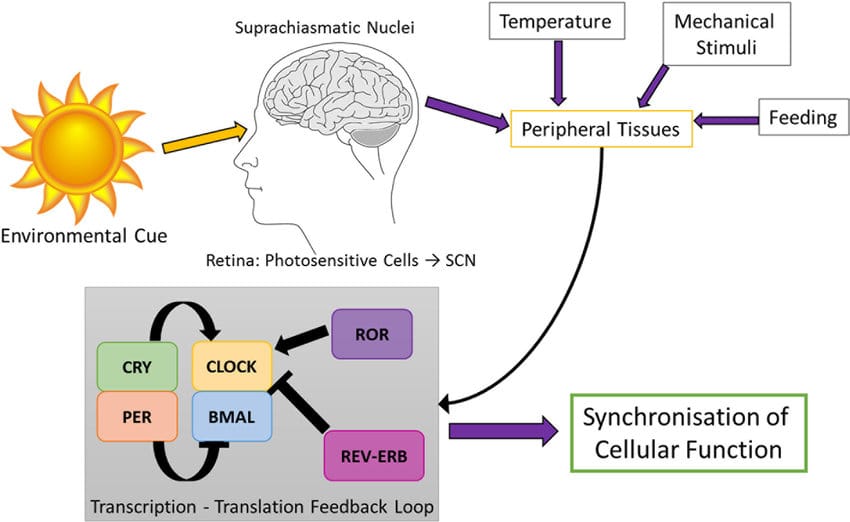Sunlight and Sleep

The ongoing battle to get adequate sleep in our fast-paced lives can often feel like an uphill struggle in our pursuit of overall well-being.
Based on statistical surveys, 32% of people with the USA report less than 7 hours of sleep. If that doesn't seem bad, it gets even worse. After the COVID-19 pandemic, the rate of insomnia among healthcare workers increased from 44% to 64%.
When a person doesn't get enough sleep, it can have detrimental effects on their overall health and well-being, increasing the likelihood of developing chronic illnesses like obesity, heart disease, and type 2 diabetes. The potential also exists for mental health conditions like anxiety and depression.
Seeking restful sleep.
Sleep aids have become all the rave. Some people use alcohol. Supplements seem to be the moving trend. Overall, sleep hygiene is a highest quality proven method and effective strategy. Research supports one highly effective strategy. Best part is it's also free. Sunlight.
I hope to simplify a complex biochemical pathway, the circadian rhythm, and show how sunlight exposure though the eyes is critical for sleep and mood.

Sunlight sends signals through the eye to the brain. Complex brain structures process the stimuli regulating several unique pathways. Regular and consistent signals are crucial for these pathways. Our circadian rhythm depends on it and so does our health.
Throughout the day, our bodies can interpret the changing wavelengths and intensities of sunlight or natural light.
You are probably wondering why this is even relevant. Our evolutionary path includes sunlight, which intricately intertwines with human physiology.
Clock gene expression. Gene expression based on the circadian rhythm. When these genes function optimally, fully expressed, it reinforces pathways beneficial for improved metabolism, immune health, mental health, and hormonal control.
Our bodies respond to feedback from the environment. Ambient light from the sun entering through our eyes is the perfect example of an external environmental stimuli.
The brain is signaling the rest of your body while the light exposure changes through the day. Changes in light regulation impact hormones, neurotransmitters, activity levels, mood, and several fundamental biological processes.
Negative effects of light
Smart phone use delays sleep onset. Although there is limited evidence, it is easy to understand the connection between late-day light exposure and poor sleep quality, especially when considering the negative impact of cell phone use.
Seasonal effective disorder is another obvious example. A varied type of depression. It occurs during the winter months. The incidence seems to be higher in regions located further from the equator, primarily because of the reduced exposure to sunlight, which affects the internal clock and circadian rhythm of the body. The emotional and behavioral changes are less than favorable, resulting in sadness, irritability, fatigue, insomnia, and difficulty concentrating.
Positive impact of eye exposure to light.
Many studies show the benefits of improving many mental health problems
- It has anti-depressant effects in age related depression
- Slows down progressive cognitive decline
- It improved seasonal affective disorder
- Modulates mood variation, making you feel better
- Improve symptoms of schizophrenia
The simple fix
To get the most benefits, experts recommend exposing your eyes to sunlight in the early morning.
Consistency is important, so it should happen at the same time every day.
Every day, for a duration of 30 to 60 minutes.
Consistency is key.
Avoid cell phone light exposure late at night. Consider blue light filters or changing screen colors.
Avoid bright artificial lights later at night, close to bedtime.
Summary
There is a global sleep epidemic. It estimated there are millions of people worldwide who suffer from a lack of sleep. In the United States alone, 50-70 million people suffer from some form of sleep disorder. Sunlight interacting with the photoreceptors in the eyes seems like a simple concept, yet it yields profound regulation of the body's health system. Getting regular sunlight in the morning not only improves sleep quality and duration, but can improve mood and mental health. Amidst the delicate balance of light and darkness, the act of embracing the morning sun has the potential to illuminate not just our daily lives, but the very essence of our well-being, gradually, as we cycle through our sleep.